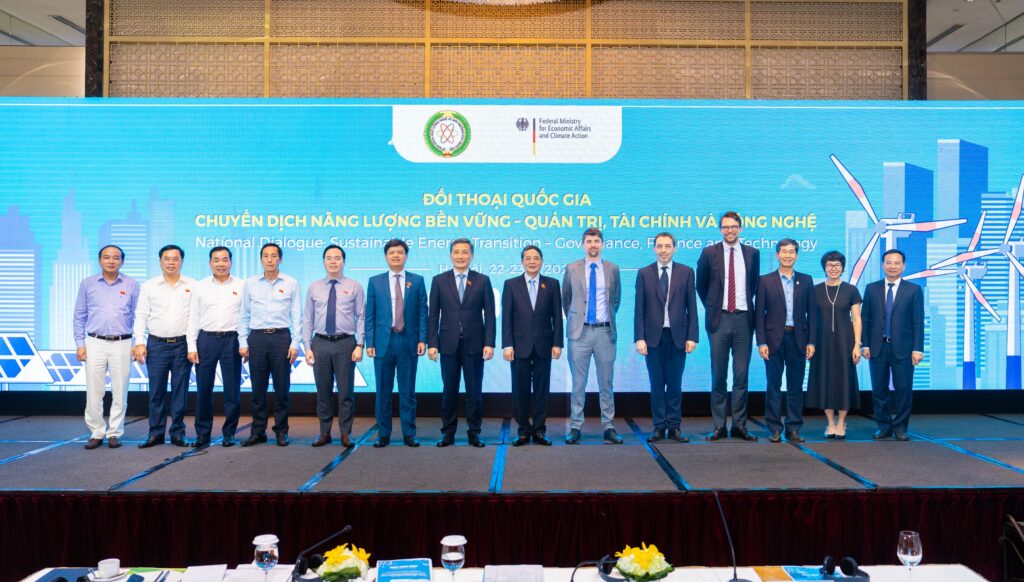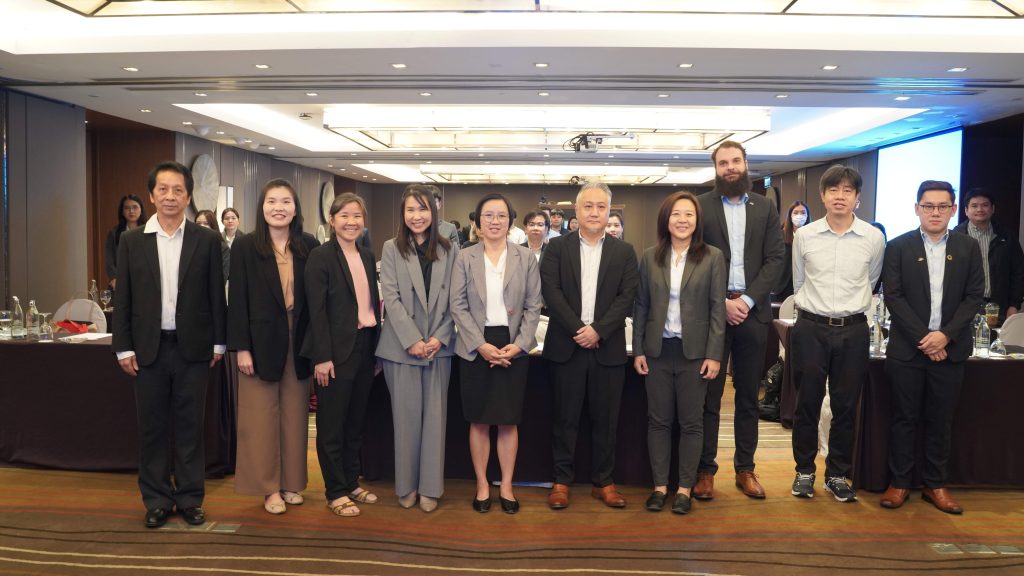Viet Nam is striving to realize the country’s strong commitment on decarbonization through just and sustainable energy transition. The country’s greenhouse gas (GHG) emission reduction target is set out, in which, by 2030, the energy sector will emit no more than 457 million tons of CO2 equivalent (32.6% reduction compared to the BAU – Business-as-usual), the share of renewable energy (RE) sources accounts for at least 33% of total electricity generation; and by 2050 these figures are 101 million tons of CO2 equivalent (91.6% reduction compared to the BAU) and the share of RE sources accounts for at least 55%. (according to the Decision No. 896/QD-TTg dated July 26, 2022).
On 22 and 23 November 2022, the National Dialogue on “Sustainable Energy Transition – Governance, Finance and Technology” has been co-organized by the National Assembly’s Standing Office of the Science, Technology and Environment Committee and the German Development Cooperation Agency (GIZ). The event was hosted within the scope of the “Clean, Affordable and Secure Energy for Southeast Asia” (CASE) project, sponsored by the German Federal Ministry for Economic Affairs and Climate Actions (BMWK).
The dialogue co-chaired by His Excellency Nguyen Duc Hai – National Assembly’ Deputy President and His Excellency Guido Hildner – Ambassador of the German Embassy to Viet Nam, has attracted the participation of more than 200 live and online delegates from committees and agencies of the Party, the National Assembly, the Government, Ministries, local governments, experts, scientists, managers, international organizations, and press agencies.
The focus of the discussion was on international experiences as well Viet Nam’s practice in developing strategic orientations and plans for a sustainable energy transition to reach carbon neutrality by mid-century. Participants from various organizations enthusiastically exchanged about the roles of the National Assembly in facilitating the energy transition roadmap; the strategic orientations for sectoral development towards low emission targets. Especially, representatives from BMWK and the Indonesian Ministry of Energy contributed their hands-on experience of implementing roadmaps towards net-zero by 2060.
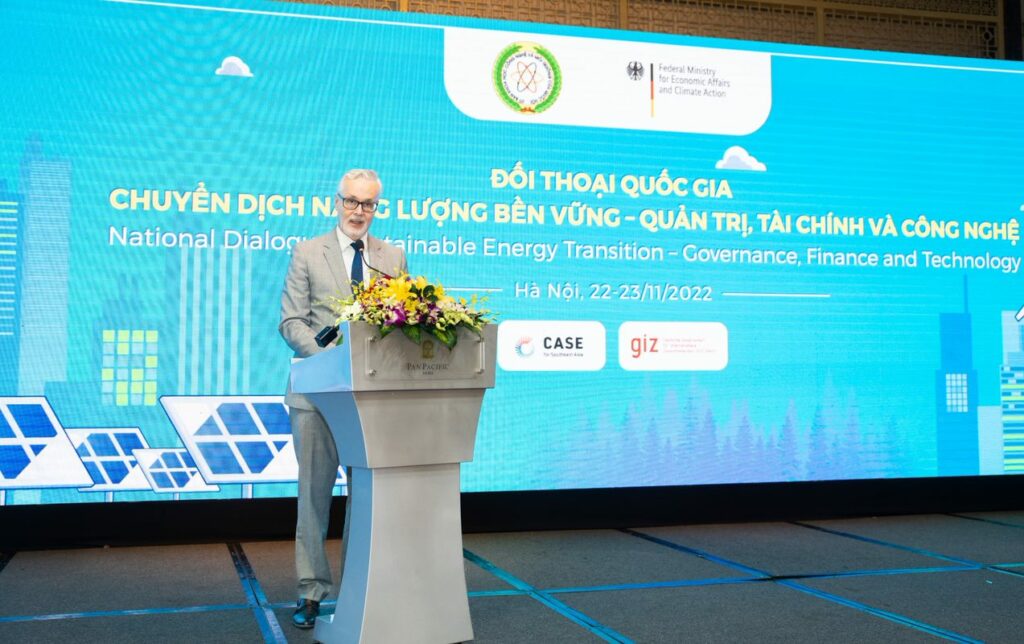
H.E. Guido Hildner affirmed the commitment of Germany to join hands with the energy transition process in Viet Nam at the event: “The Just Energy Transition is a global challenge. The current global energy crisis shows us the urgency to invest in a diversified energy mix, especially with clean, affordable and secure renewable energies. I am impressed by Viet Nam’s rapid growth of more than 20 GW renewable energy capacity over the last 3 years which is highly acknowledged worldwide and sets the course for the Net-zero 2050 target announced by the Prime Minister. Now it is important to keep the momentum and move on in a thoughtful way. Lessons from Germany show that to be successful, there must be a long-term commitment from the public to sustain a structural change in all relevant sectors, from energy to transport, from environment to finance. We strongly believe that Just Energy Transition has to be a joint effort of the international community. In 2021, Germany contributed approximately 8.1 billion EURO for various international climate financing mechanisms, including both financial and technical assistance. The German Government is especially proud on working with Viet Nam on sustainable development in general and on the just energy transition in particular.”
Given that governance, with a focus on regimes, policies and laws, is the key for just and sustainable energy transition, in the coming time, the Vietnamese National Assembly will concentrate on completing legal framework for energy development, focusing on research and assessment of the current status, and reviewing of the legal system for comprehensive revisions of the Electricity Law, the Law on Economic and Efficient use of energy, the Law on Atomic Energy, and the Mineral Law, formulation of the Law on Renewable Energy…
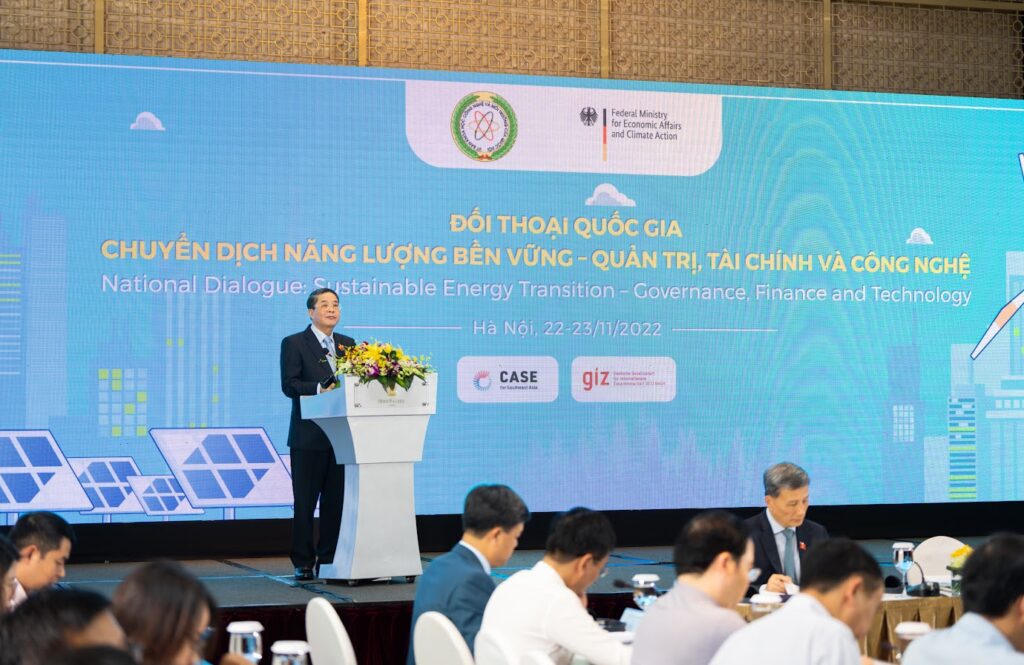
H.E. Nguyen Duc Hai emphasised: “In recent years, Viet Nam has emerged as a dynamic economy with a high growth rate. The demand for energy, especially electricity, is increasing. In order to achieve the goals of green, sustainable economic development and adaptation to climate change, the Party and State of Viet Nam have issued many guidelines, policies and laws on energy development, especially on February 11, 2020, the Politburo issued Resolution No. 55 on “Orientation of the Viet Nam’s national energy development strategy to 2030, vision to 2045”, which clearly states the view that “Ensuring National energy security is both a foundation and an important premise for socio-economic development. Prioritising fast and sustainable energy development associated with environmental protection, national defense and security and implementation of a progressive and just society is particularly important, which is also a core mission throughout the process of industrialisation and modernisation”.
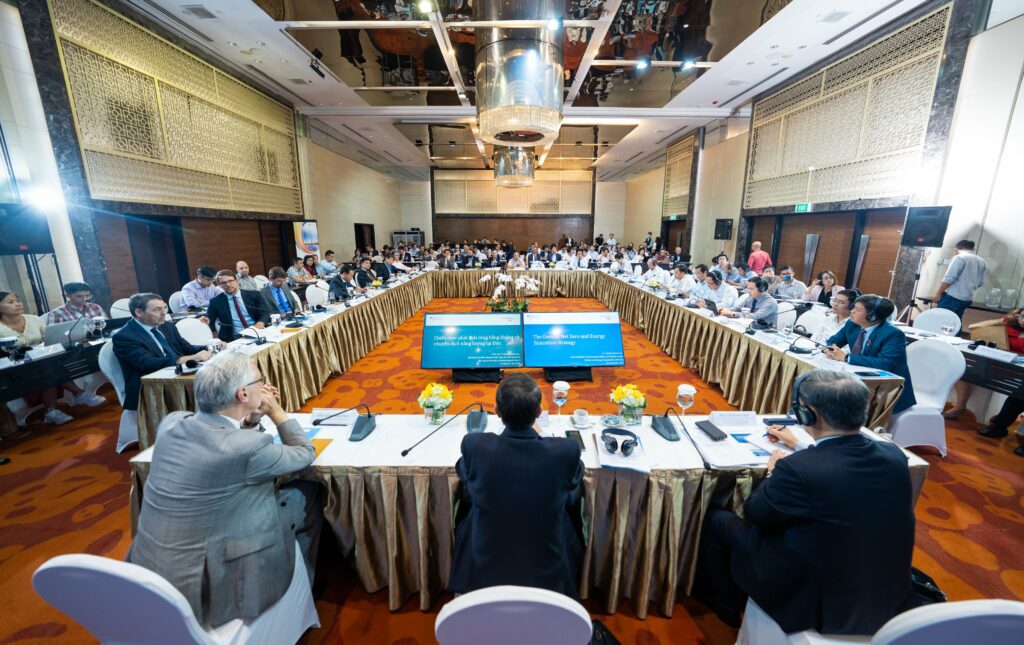
Ms. Vu Chi Mai, CASE Director shared that: “In the context of global response to climate change as well as the supply of energy from conventional sources, energy transition becomes a need and a solution more than ever. The energy transition process requires joint efforts and commitments of various authorities and units at all levels. Hence, in Viet Nam, CASE project is given an opportunity to work with the National Assembly – the highest organ of state power – to deal with this topic and this is really a good fit. In addition to the organisation and provision of high-level dialogue platforms, the project also conducts studies to show specific evidence which enables the National Assembly to further supervise and better promote just and sustainable energy transition.”
The National Assembly’s agencies, including the Committee on Science, Technology and Environment, will consider, review and adopt appropriate recommendations proposed throughout the dialogue to foster legal framework, laws and resolutions on the implementation of the state’s directions and policies on sustainable energy development.
The link to download the materials of the event: GIZ – Tài liệu Hội thảo “Đối thoại Quốc gia về chuyển dịch năng lượng bền vững – Quản trị, tài chính và công nghệ” (gizenergy.org.vn)
For more information of CASE Viet Nam project: GIZ – Clean, Affordable and Secure Energy for Southeast Asia (CASE) (gizenergy.org.vn)

